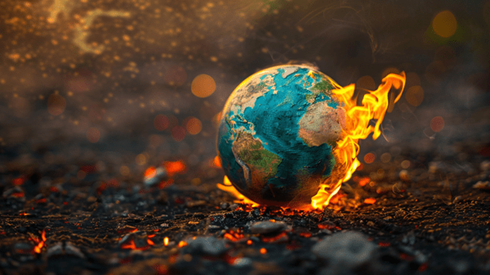Global Catastrophes: A Recap of Q1 2024's Impact and Implications

May 01, 2024

The first quarter of 2024 witnessed significant global disaster events, with total economic losses exceeding $45 billion, according to Aon's latest Q1 Global Catastrophe Recap report. Despite being lower than the previous year, it still surpassed the 21st-century Q1 average. The costliest event was the Noto Earthquake in Japan, causing economic losses of $17.6 billion. Severe convective and winter storms in various regions, along with windstorms and flooding in Europe, also contributed to the losses.
Globally, insured losses from natural disaster events in the first quarter of 2024 were estimated at at least $17 billion, with severe convective storms and winter weather events being major drivers. Despite lower losses compared to the previous year, the number of billion-dollar events remained significant, with notable impacts in the Asia-Pacific region, particularly Japan, according to the report.
The Noto Earthquake in Japan claimed at least 245 lives and caused significant material damage, ranking among the costliest events in the country's history. Despite advancements in earthquake-resistant infrastructure, the impact on dwellings and infrastructure was substantial, highlighting ongoing challenges in risk mitigation.
In the United States, severe convective storms, winter weather, and flooding led to insured losses totaling nearly $13 billion, well above the 21st-century average. Notable events included large hail, violent tornadoes, and widespread wildfires, such as the Smokehouse Creek Fire in Texas, which became the largest wildfire in the state's history, the report said.
Wildfires in the United States surpassed the 10-year average of acres burned, with the Smokehouse Creek Fire in Texas and Oklahoma becoming the costliest Q1 insured loss event from wildfires on record. This event alone exceeded the 21st-century wildfire Q1 insured loss average.
The United States also recorded the warmest winter on record. Despite this, a substantial cold air outbreak in mid-January resulted in over 70 deaths, making it one of the deadliest winter weather events in the country in the 21st century, according to the report.
The report said that Chile faced its worst disaster since 2010, with devastating wildfires claiming lives, injuring many, and causing significant economic losses. The wildfires, aided by strong winds and heatwaves, resulted in widespread destruction of buildings and infrastructure in Central Chile.
Historic record-setting high temperatures were observed globally during the first quarter, exacerbating drought conditions and wildfire development in various regions. These temperature anomalies are attributed to the ongoing La Niña phase, which is expected to switch to a neutral phase later in the year. The transition to La Niña could have implications for the upcoming hurricane season, with forecasts suggesting above-average activity, the report said.
May 01, 2024
